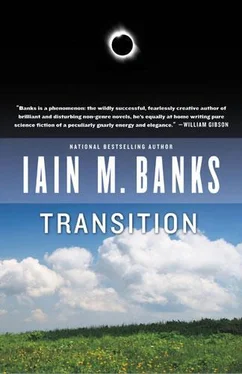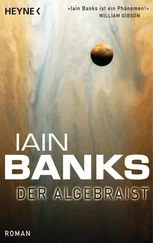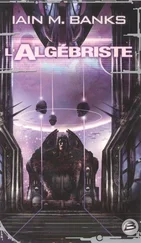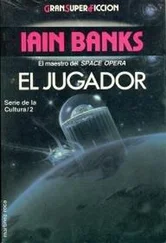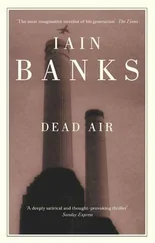“Oh, I’m as serious as she is,” Mrs Mulverhill told him, eyes wide. “Madame d’Ortolan is one of those people – civilised on the surface, brutish underneath – who think themselves realists when they contemplate their own barbarism, and ascribe the same callousness to others. Making the assumption that everybody else is as ruthless as she is helps her live with her own inhumanity, though she would justify it as simple prudence. She knows how she would deal with somebody like herself: she’d kill them. So she assumes those who oppose her must be planning the same, or shortly will. Obviously, then, by her demented logic, she needs to kill them before they kill her. She will think through this psychotic escalation without any evidence that her opponents actually do intend her harm and she’ll pride herself on her disinterested practicality, probably even persuading herself that she bears those she has marked for death no personal ill will. It’s just politics.”
Mrs Mulverhill smiled briefly. “She will move against them, Tem; decisively as she would see it, murderously as anyone else would.” She put one mittened hand on his arm. “And she may think to use you to do so, as you are still her promising boy. Discover and test your loyalty and commitment by ordering you to make the cull. Though she will undoubtedly have alternative means set up if you decide not to cooperate.” Her gaze fastened on him. “If you do decide against her, you will be making yourself an outlaw too, or at best symbolically leaping behind a barricade with others, like myself. And, unless we succeed, the full force of the Central Council and the Concern itself will be turned against you, against us, in time. We have to persuade the waverers, who are probably the majority, that we are right, and we need to survive long enough to do that. If we can resist the Council successfully they will look weak and be seen to lose authority. Then negotiation, compromise might be possible.”
“You don’t sound very hopeful.”
She shrugged. “Oh, I am full of hope,” she said, though her voice sounded small and faint.
He went to her and put his arms around her. She pressed gently against him, her head against his chest. Moments later, almost together, a series of beeps announced that their oxygen cylinders each only held enough gas for a few more minutes.
Patient 8262
I think I have to leave. I cannot stay here. Or maybe I can. I’m not sure.
It is comfortable here. All is not perfect; I still worry that somebody might try to violate me again, and there remains the disturbing incident with the broad-shouldered lady doctor and her dolls, when things seemed to slip aside from reality and it felt like I could only escape through fainting, but, even so, my existence here is relatively calm and unthreatened. Maybe I should stay.
I am trying to spend less time asleep or snoozing or just with my eyes closed. I am trying to discover more about where I am: about this society and the clinic and about myself. This has met with mixed results so far. However, I feel it is necessary no matter whether I stay here or leave. If I stay I need to know where it is that I am staying, so that I am prepared for what may happen. (Suppose I am only here for as long as some sickness fund or medical insurance settlement lasts and then get thrown out regardless, for example.) If I am to leave then I need to know into what sort of world I would be venturing.
So I have, albeit reluctantly, especially at first, been spending more time in the day room, watching television with the slack-jaws, droolers, mumblers, random shouters and nappy-wearers who inhabit the place. (There are one or two of its denizens who are not irredeemable, but they are very much in the minority.) It is amazing, though, how little one can glean from the sort of broadcasts these people choose to watch. I have tried finding news or current-affairs channels, but this always causes protests, even from the true slack-jaws who you’d have sworn might as well have been sitting watching a turnip rather than a functioning television.
They like cartoons, mostly. They will watch programmes with lots of shouting and movement and colour, but anything that might actually engage the brain’s higher functions, beyond the sort of stimulus on a par with a chain of plastic toys stretched across an infant’s cot or pram, that they cannot cope with. I have learned a little more of the local language, that’s about all. I persist only because the very distracting nature of the programmes sometimes lets my higher functions disengage more easily from the here and now, freeing me to think.
I asked for and was given a radio to use in my room. That was better. I am still struggling to understand more than about a quarter of what is said – less when people talk too fast – but I have worked out that this is a mostly peaceful world and that this is a relatively benign, egalitarian society – my care here will continue indefinitely, paid for by the state – and that I am here because I suffered some sort of breakdown which left me in a catatonic condition for a month. The medical staff think I must still be suffering from a mixture of amnesia and delusion, or that I am just plain putting it on, pretending to be crazy to escape… well, whatever it was I felt the need to escape.
I have been back to the ward of sleeping men, in daylight. Nobody tried to stop me. It is an ordinary ward, after all. The men were mostly awake – a few were snoozing, but not all – and there were chairs by the bedsides, and there were flowers and Get Well Soon cards on the bedside cabinets, and there was even a family – what I took to be a wife, sad and sallow-faced with two small, silent children – visiting one of the patients. The two adults were talking quietly. Some of the other men, sitting up in bed, looked at me as I stood at the doors of the ward, staring in. I met their level, mildly inquisitive gazes, felt foolish, and turned and walked away down the echoing corridor, relieved and disappointed at once.
My name still means nothing to me. Kel. Mr Kel. Mr P. Kel. Mr Pohley Kel. Nothing. It means nothing to me – well, beyond that it feels the wrong way round somehow. Still, it seems that I am stuck with it and I suppose it will do as well as any other.
I was a crane driver, they tell me. I worked in one of those tower cranes they use to build tall buildings and other large structures. This is a job of some skill and responsibility, and one that you’d want someone quite sane and sensible doing, so I probably couldn’t just walk back into it. But it occurs to me that it is also a job that somebody who did not very much like interacting with other people might choose, and one that might allow the imagination to roam free and unfettered above the city and the site, so long as the mechanics of the job got done safely.
I lived alone, a loner, both in my home life and up there in the sky, swinging loads around from place to place while the people below scurried like ants and I took instructions from disembodied voices crackling over the radio. No family, no close friends (hence no visitors, save a foreman from the firm while I was still catatonic, apparently – anyway, the whole building team has moved to another city now). I’m told I rented a small flat from the city council which has now been allocated to somebody else. My possessions, such as they may be, are in storage until I claim them.
But I remember nothing of that life.
Rather I was a dangerous, skilled, swashbuckling hero, a remorseful but utterly deadly assassin, a thinking person’s hooligan and later (or perhaps just potentially) a mover and shaker, high-flying, fast-tracked, in a vast and burgeoning shadow-organisation spreading secretly under our banal existence like some fabulously bright and intricate mosaic long buried unglimpsed beneath a humble hearth.
Читать дальше
